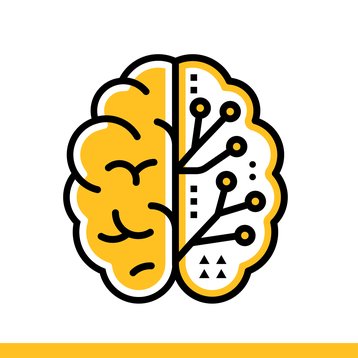No longer a futuristic concept, artificial intelligence (AI) is rapidly becoming successfully deployed in countless industries to optimize different aspects of business - from supermarket logistics to medical research. AI certainly can open doors to monumental business opportunities, and it’s easy to see why so many businesses are jumping on the bandwagon.
A recent study by Infosys shows that 76 per cent of IT decision makers believe that AI is a long-term strategic priority for innovation. So it’s not surprising that worldwide spending on cognitive and artificial intelligences systems is predicted to reach $57.6 billion in 2021, or that the technology is on the lips of media and influencers worldwide.
That said though, introducing technologies such as AI isn’t simple and doesn’t happen overnight. Data centers are vital for storing the data needed to power AI, so naturally growth in this technology will require more from data centers which can be problematic, especially for those facilities already working at high capacity. This forces data centers to add more servers and hardware which becomes complex to manage, not to mention increasing the already high operational costs.
As with much technology underpinning business, many data centers run on inefficient, legacy technology because companies tend to add to existing systems rather than optimizing the existing system. All this puts extra pressure on data centers and intensifies long-standing issues. So, in order to keep pace, data centers will need to evolve. And AI may be just the thing.
Artificial environment
Arguably, the most pressing of these issues is energy consumption, as data centers now account for up to six percent of global electricity use. This is a concern for business costs and there is now increased pressure to take corporate responsibility for environmental concerns. Organizations like Greenpeace have been calling for tech companies to become more energy conscious for some time and now they are honing in on data centers’ carbon footprint.
More data centers are moving to renewable energy sources although this is not feasible for many data centers, particularly smaller ones.
Switching to renewable energy only addresses part of the problem and as the demand for computing power continues to grow all options should be explored.
AI offers opportunities to improve efficiency and reduce energy consumption by using existing data and real-time monitoring. With AI, workloads can be distributed across servers to maximize productivity and solve network congestion issues.
AI can also be used to control the data center environment in real-time, such as cooling systems, to reduce energy consumption. Google is already implementing AI to monitor the data center environment and reported that DeepMind AI was responsible for reducing Google’s data center cooling bill by 40 percent.
Don’t rely on error
Another critical area under pressure in the modern data center is security. In the cyber security battle, the stakes for data centers are particularly high. They are highly complex infrastructures and have extensive levels of encryption so preventing data breeches in an ever-evolving IT landscape requires constant vigilance.
The solution again, may lie in AI. Implementing AI systems can offer a more flexible and sophisticated solution to data security as well as the possibility of reducing reliance on human intervention. The nature of AI allows it to adapt far more quickly than humans as well reducing the man-hours spent on round-the-clock monitoring issues and decrease risk of human error.
With all these data center opportunities unlocked by AI the concept of a human-free data center is closer than many imagine. Some companies like Litbit are already trialling-AI driven robots to assist with data center management and hardware maintenance further cementing the ties between AI and data center. This all then allows humans to focus on new areas of innovation.
Rising to the challenge
As more companies strive for digital transformation, the relationship between AI and data centers has never been so complex and important. It’s clear that futures of AI and data centers are intrinsically linked. As the demand for AI and ML systems increases so does the need for the physical space to store the huge quantity of data required to run them, resulting in a higher demand of data centers. Data is the lifeblood of AI systems and data management will continue to be one of the biggest challenges businesses face going forward.
As servers process data, they learn from it creating a cycle which improves AI and data center ecosystems endlessly. This all starts with a flexible, future-defined and AI-optimized data center. The right infrastructure, balanced with effective AI systems will enable today’s businesses to stand out from the rest of the competition.
Guy England is director of the Lenovo Data Center Group in the UK


